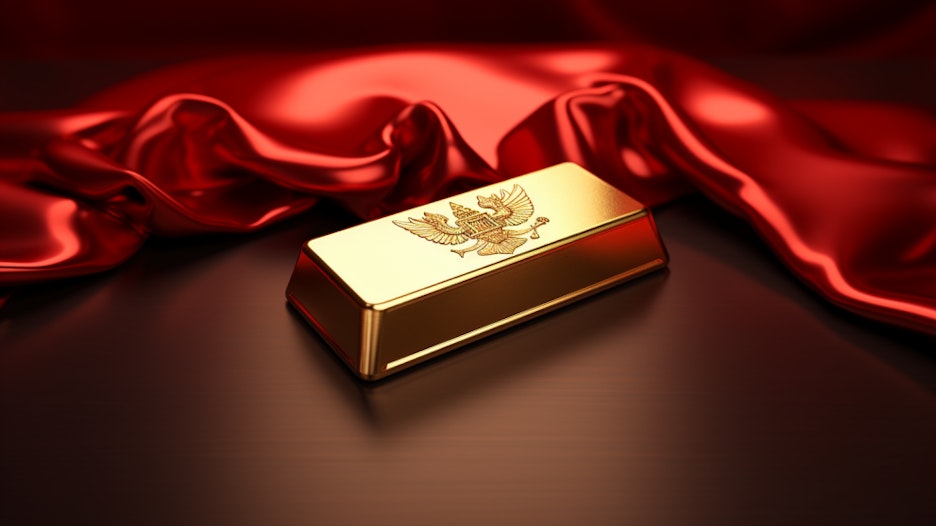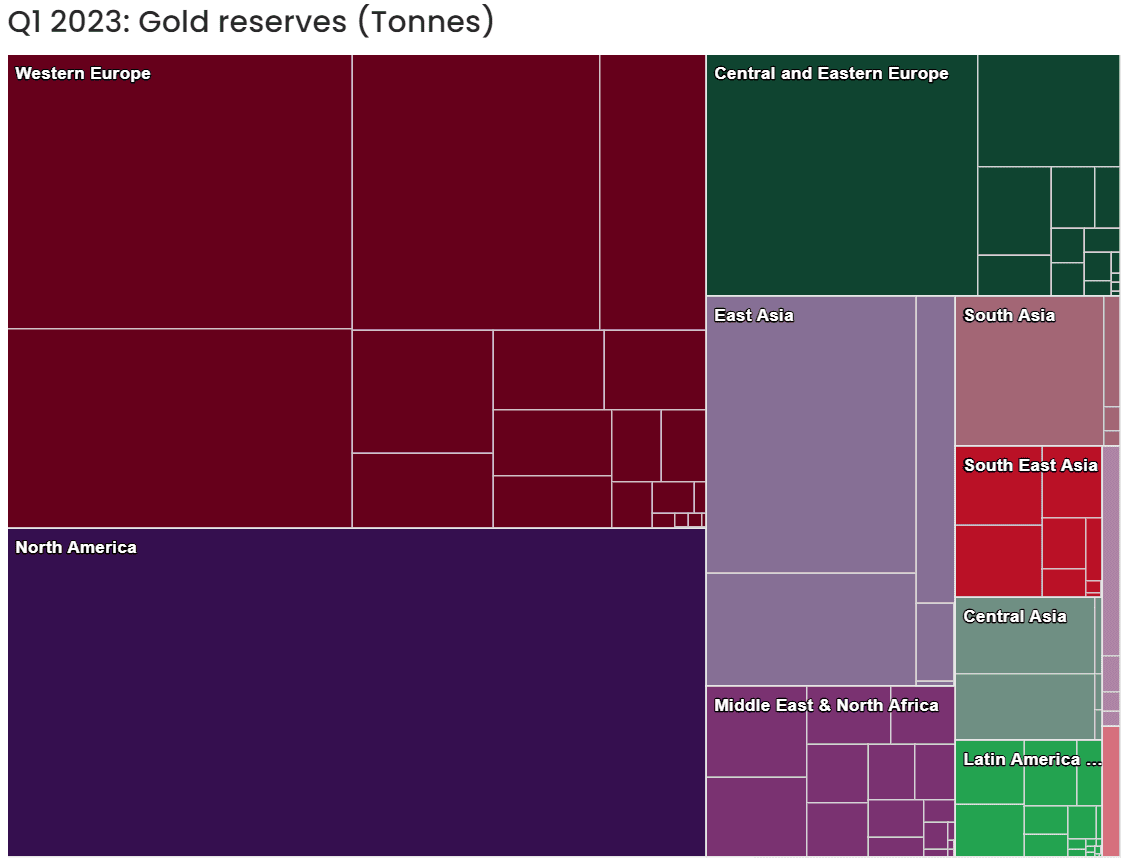News - This is why Putin's new "gold standard" will fail
According to Russian propaganda channel RT, the BRICS countries' new gold standard is beginning to take shape. Does Putin's new "gold standard" stand a chance of replacing the U.S. dollar? Probably not. Critics of the U.S. dollar and fans of the gold standard are feeling very confident these days. The reason is the alleged intention of the BRICS countries to issue their own currencies. The alternative to the US dollar should be backed by gold and thus gain the confidence of holders - at least that is the theory.
Russia's monetary special operation
The motivation behind the new gold currency is simple: the dominance of the US dollar is a thorn in the side of the BRICS countries. Russia in particular had to experience this painfully when its foreign currency reserves in US dollars were frozen during its war of aggression against Ukraine.
Thus, all countries whose relationship with the U.S. can be described as strained have become impressively aware of their dependence on the current major currency. Therefore, they now want to step on the gas pedal and take advantage of the general uncertainty in the currency sector.
No money without confidence
The basis of any currency is the trust placed in it. However, the BRICS countries, especially Russia, do not exactly have the most trustworthy reputation. Therefore, as a substitute for trust, the intended gold hedge is invoked.
This in turn raises the question of whether gold hedging can be trusted. In what proportion should the currency be backed by gold? Can the currency be converted back into gold at any time? What powers over gold do the BRICS countries have with their newly established financial institutions? So far, one can only speculate.
BRICS gold currency a giant project
Building such a gold currency regime together with several countries is a huge project. Even if Russia hits the gas pedal here, it is doubtful that such a project can be implemented in a few months - without an immediate backlash.
Every single BRICS state would love to assert its interests in such a construction. But not every state is equally powerful. China has the most say in this round. South Africa, on the other hand, would have a much harder time.
Nor are the BRICS countries an association of friends. India, in particular, has no interest in hiding under China's hat. And as if that were not enough, Russia is a ticking time bomb. How long will Putin be able to guarantee domestic political stability? China will not blindly take risks just to put a damper on the U.S. dollar. Especially since they want to further roll out their CBDC (Central Bank Digital Currency), which could come into conflict with the BRICS gold currency.
Victims of their own success
Suppose that all the aforementioned criticisms turn out to be unjustified reservations and the planned BRICS gold currency becomes a complete success. Even then, the question is whether the BRICS countries are really doing themselves any favors.
After all, it is only a second currency, in addition to its own national currency. So the situation is completely different from that of the U.S. dollar, which was backed by gold until 1971. If the BRICS gold currency were to be a great success, the project could even backfire.
After all, more and more money would flow from the Rouble, Renminbi, etc. to the gold currency - all fiat currencies not backed by gold would become worth less against the BRICS gold currency. The repayment of foreign debt could quickly lead to a new debt crisis given the value pressure.
Fort Knox instead of Moscow
If one further assumes that the importance of gold in the currency context will continue to grow, the BRICS countries would also lose out here against the West. Most state-owned gold reserves are still in the vaults of the West, as the chart below shows. Even if China were to purchase more gold than officially indicated, the gap between the BRICS countries and the West is huge.
The biggest gold pie is still owned by the West, source: gold.org
Is this more of an internal currency than a world currency?
Against this background, the impression arises that the BRICS gold currency could be more of a "currency light," an exclusive, internal currency. This would have nothing to do with a "real" currency open to individuals or external factors to buy or trade with. As a closed system, accessible only to participants, one would not even have the ability to enter the global currency contest in terms of construction. A threat to the U.S. dollar looks different.
Instead, the BRICS gold currency could serve more as a special currency for foreign trade, used as collateral for loans. For example, if South Africa buys commodities from Brazil, the BRICS gold currency could be used instead of the U.S. dollar for that trade.
But even if the U.S. dollar dominates as the main currency in commodity trade, the BRICS countries do not need a supranational currency to do so. More and more foreign trade transactions or credit financing by international players already take place without the U.S. dollar.
Better Bitcoin than gold
If the BRICS countries want a dollar-agnostic payment infrastructure whose store of value is not subject to inflation, it would be much easier to agree on Bitcoin. Transactions cannot be blocked, nor can funds be frozen. No one needs to trust the other and fear that the other will gain an advantage in the newly created system.
While gold is expensive and susceptible to fraud because of its physical limitations, this would not be the case with native digital Bitcoin. Instead of having to trust a "corrupt country" like Russia to honestly report its gold holdings, it would be much more reliable and easier to take a look at the Bitcoin blockchain. This same intention also echoes the statement of Larry Fink, CEO of BlackRock, who recently spoke about Bitcoin's role in international trade.
Putin's wishful thinking will fail in reality
At first glance, the promises of a gold-backed currency may sound appealing to many people. Confidence in our monetary system has steadily declined in recent years. But to believe now that a gold-backed currency of the BRICS countries will pose a threat to the U.S. dollar is unlikely to work.
Instead, the new gold currency is probably mostly a matter of wishful thinking on the part of the Kremlin, which not every BRICS country is enthusiastic about. This would also explain why so far only Putin's media outlet Russia Today and gold lobby sites such as Kitco have presented the BRICS gold currency as a done deal.







